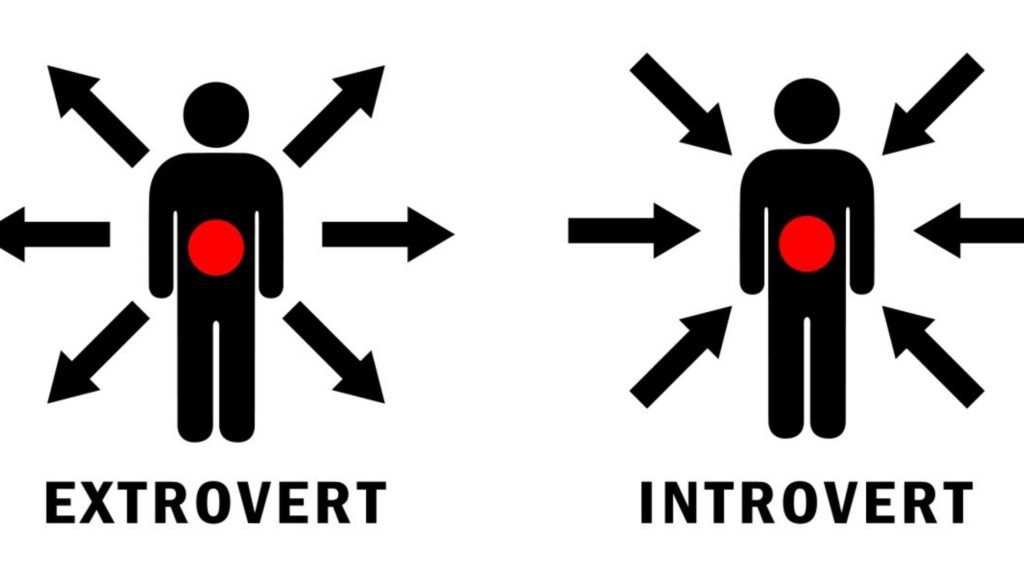Reports estimate that between 30-50% of the population are introverted. Whilst, the exact amount is not known, for many people who are introverted, they are made to feel like introversion is not the ideal.
Our workplaces here in the UK, the US, and many other parts of the world seem unfavourably biased towards extroversion. When we look at many workplace practices, the way they are designed make it more challenging for those who are introverted to respond as their best self. Some parts of the world, however, value introversion as a leadership strength.
Introverts typically have a preference for thinking and reflecting, before giving a response. However, if we look at the way that meetings are conducted, the way that interviews are held, the way that networking is typically done, and brainstorming, they don’t give the space for thinking and reflection that many introverts prefer.
People are expected to respond on the spot. Introverts are told to speak up more in meetings, they are misunderstood, and incorrect assumptions made that they are shy or lack confidence. Which, whilst it may be the case for some, is not the case for all.
Are there more introverts or extroverts on LinkedIn?
I recently conducted a LinkedIn poll to see what LinkedIn users identified as when it comes to introversion and extroversion. I wanted to get a feel as to whether there are actually more people who identify as extroverted, or whether it is just an assumption. In the post accompanying the poll, I put the description of introversion, extroversion and ambiversion as defined by the American Psychological Society.
The results were very surprising. There were 598 people who took the poll with 64% selecting introvert, 29% selecting ambivert, and only 8% selecting extrovert.

I wonder, does this then mean that there are more people who identify as introverted than what we think there is? A study by Daniel Feiler and Adam Kleinbaum published in Psychological Science suggests that we over perceive the number of extroverts that are out there. Extroverts gain more friends than introverts do, and the more similar two people’s levels of extroversion are, the more likely they are to become friends.
The result of this is a network extroversion bias, where our social networks have more extroverts than introverts. With people who are more extroverted having the greatest network extroversion bias than people who are more introverted. They found that social networks were systemically misrepresentative of the broader social environment.
Is there a bias in society?
It raised the question for the researchers as to whether there is a bias in society toward believing other people are more extroverted than they actually are, and whether introverts are better at being able to read social cues and respond to them appropriately.
If we are friends with people who have lots of friends, does this skew our perception and we think there are more extroverts than introverts?
Regarding the results of my poll, it could be that my LinkedIn following is biased towards introverts, given that I write a lot about introversion and the challenges introverts face as leaders. Nevertheless, I was not expecting the number of extroverts to be so low.
Why does this even matter?
You may be wondering why this even matters. In an ideal world, it shouldn’t matter whether someone is introverted or extroverted because we need both of these traits in our organisations. Having this diversity of styles makes for a richer dynamic.
However, because so many leaders who are introverted feel like they are in the minority and that there is an unfavourable bias towards them, knowing that there are more like you than what you think, can be empowering. It also means that there is strength in numbers.
Many of our workplace practices (i.e., the ones mentioned above) are outdated and need to change so that they are more inclusive. Utilise this strength in numbers to form a collective voice to bring about this change, and to change the narrative concerning introversion.
What are your thoughts? I would love to know so please let me know in the comments below.
First published on LinkedIn.
If you are an introverted woman and a senior leader and want to increase your confidence, influence and impact, take my free assessment and get a report identifying areas to develop. You can take the assessment here.

